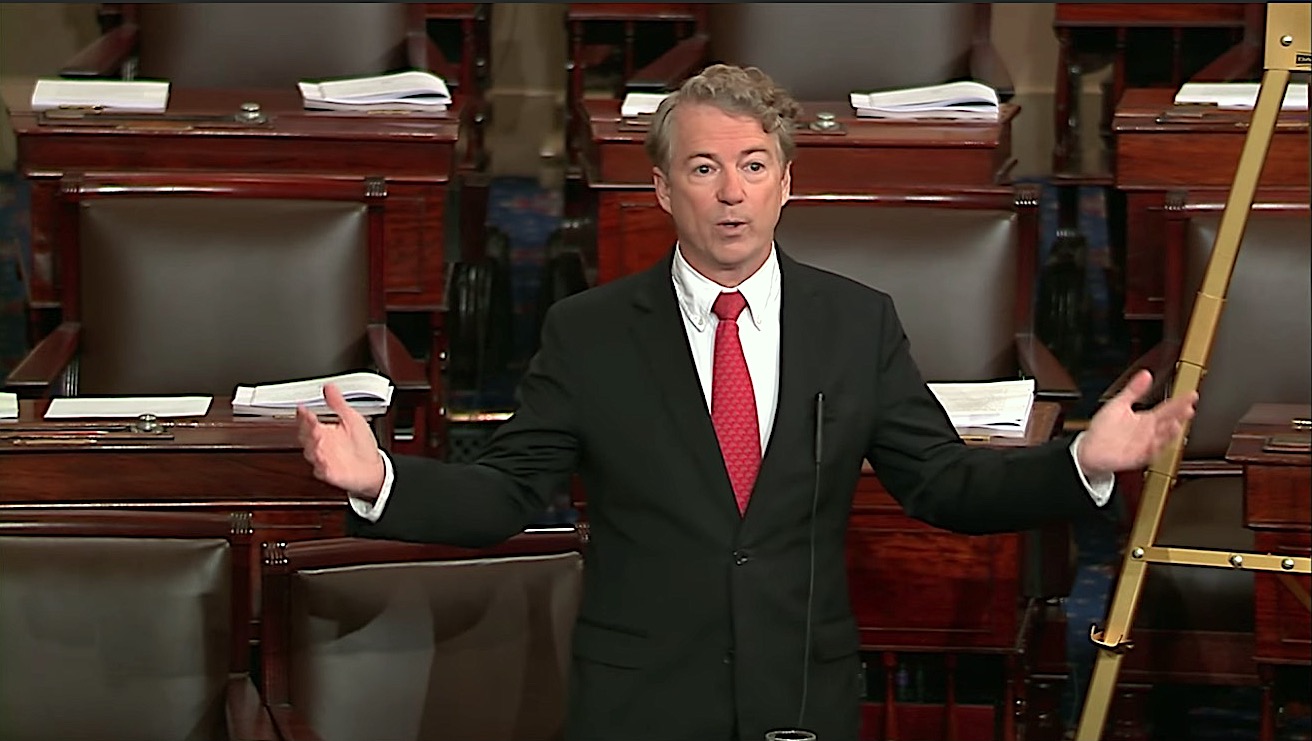Here's why Rand Paul says he shut down the federal government


A free daily email with the biggest news stories of the day – and the best features from TheWeek.com
You are now subscribed
Your newsletter sign-up was successful
The U.S. federal government partially shut down at midnight, and the proximate cause is Sen. Rand Paul (R-Ky.), who refused to give consent Thursday night to vote on the massive spending bill worked out by Senate Majority Leader Mitch McConnell (R-Ky.) and Senate Minority Leader Chuck Schumer (D-N.Y.). Paul's stated concern was the federal deficit — which, he pointed out, was the Republican Party's stated concern until about a year ago. "How come you were against President Obama's deficits, and then how come you're for Republican deficits? Isn't that the very definition of intellectual dishonesty?" he asked his colleagues. "Isn't that the very definition of hypocrisy?"
Paul, who voted in favor of the GOP's $1.5 trillion tax cut two months ago, wasn't done. Amid glares from a "visibly irritated" McConnell, The Washington Post reports, Paul said "this new stimulus of deficit spending will be as big as President Obama's stimulus," passed during the height of the Great Recession. "Don't you remember when Republicans howled to high heaven that President Obama was spending us into the gutter, spending us into oblivion?" he asked. "And now Republicans are doing the same thing."
The Senate is expected to pass the spending bill early Friday morning, but its fate in the House is less clear. GOP deficit hawks are in more or less open revolt, and Democrats are threatening to withhold their support unless House Speaker Paul Ryan promises to hold a vote on a replacement for the Deferred Action for Childhood Arrivals (DACA) immigration program. The two-year spending bill also suspends the debt limit for a year, adds $90 billion for disaster relief, extends $17 billion in business tax breaks, and renews several large health-care programs, paying for some of the spending by selling oil from the Strategic Petroleum Reserve and other revenue offsets.
The Week
Escape your echo chamber. Get the facts behind the news, plus analysis from multiple perspectives.

Sign up for The Week's Free Newsletters
From our morning news briefing to a weekly Good News Newsletter, get the best of The Week delivered directly to your inbox.
From our morning news briefing to a weekly Good News Newsletter, get the best of The Week delivered directly to your inbox.
A free daily email with the biggest news stories of the day – and the best features from TheWeek.com
Peter has worked as a news and culture writer and editor at The Week since the site's launch in 2008. He covers politics, world affairs, religion and cultural currents. His journalism career began as a copy editor at a financial newswire and has included editorial positions at The New York Times Magazine, Facts on File, and Oregon State University.
